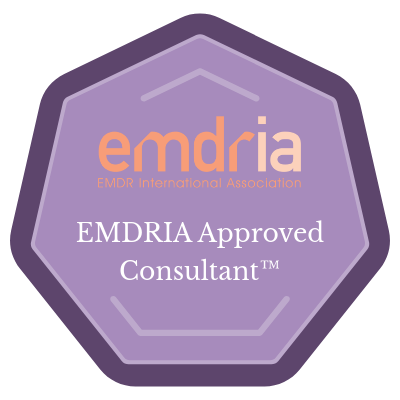Rethinking Therapy: Intensive EMDR as a Game-Changing Approach
4/14/20244 min read


The Limitations of the Insurance Model for Therapy
The requirment that insurance companies apply parity in their coverage of mental health and physical health needs seemed like it was going to make mental health care accessible to more people who need it, and would therefore improve outcomes for more people. It has not worked out that way.
The traditional insurance model requires only one hour per week of therapy, which causes sessions to end at an arbitrary time, halting progress in order to align with external requirements. This means the client has to come back in a week and pick up again (paying a copayment or full fee again, depending on where they are vis a vis their deductible!).
While it may meet the needs of insurance companies, it often fails to adequately serve the clients. One of the main issues with this model is that it does not effectively reduce costs for most patients. When it comes to therapy, clients are often burdened with deductibles, co-pays, and co-insurance. These financial obligations can quickly add up, resulting in clients paying more for a longer term of treatment. Unfortunately, this can lead to clients staying stuck in therapy longer than necessary, as they struggle to afford the ongoing costs.
A New Approach: Intensive Short-Term Therapy
Recognizing the limitations of the insurance model, I have been exploring a new way to help clients meet their therapy goals more quickly. This approach involves providing Eye Movement Desensitization and Reprocessing (EMDR) therapy in intensive short-term episodes of care. EMDR is a therapeutic technique that has gained recognition for its effectiveness in treating a variety of mental health conditions. Research has shown that when provided in an intensive format, EMDR can yield the same or even better clinical results compared to traditional therapy models. The best part, is that clients have relief and are on their way to their new life without spending months to years on a therapy couch.
EMDR addresses the psychological and physical symptoms stemming from adverse life experiences. EMDR is not just for trauma; it is also used for performance enhancement.
The Benefits of Intensive EMDR Therapy
By offering EMDR therapy in intensive short-term episodes of care, clients can experience several benefits. Firstly, the condensed format allows for a more focused and concentrated approach to treatment. This means that clients can make significant progress in a shorter amount of time.
Additionally, intensive EMDR therapy has been found to be particularly effective for a wide range of client populations. Whether someone is struggling with trauma, anxiety, depression, or other mental health challenges, this approach has shown promising results across the board. Furthermore, the shorter duration of intensive therapy can potentially lead to cost savings for clients. By reducing the number of sessions needed, clients can avoid accumulating excessive therapy expenses and achieve their therapy goals without unnecessary financial strain.
Research In support of EMDR effectiveness:
Twenty-four randomized controlled trials support the positive effects of EMDR therapy in the treatment of emotional trauma and other adverse life experiences relevant to clinical practice.
Seven of 10 studies reported EMDR therapy to be more rapid and/or more effective than trauma-focused cognitive behavioral therapy.
Twelve randomized studies of the eye movement component noted rapid decreases in negative emotions and/or vividness of disturbing images, with an additional 8 reporting a variety of other memory effects.
Numerous other evaluations document that EMDR therapy provides relief from a variety of somatic complaints.
Research and frequently asked questions about EMDR
Research on Intensive EMDR Therapy is positive:
Intensive application of trauma-focused therapy seems to be well tolerated in patients with PTSD, enabling faster symptom reduction with similar, or even better, results, while reducing the risk that patients drop out prematurely. Learn more here and here.
Intensive EMDR treatment is feasible and is indicative of reliable improvement in PTSD symptoms in a very short time frame. Learn more here.
An intensive program using EMDR therapy is a potentially safe and effective treatment alternative for complex PTSD. Learn more here.
The economy is compelling: even compared to other trauma therapy, the intensive format may decrease treatment time, because of time not spent on a) checking in at the beginning of each session, b) addressing current crises and concerns, c) focusing on stabilizing and coping skills that the client won’t need after trauma healing, or d) assisting the client in regaining composure at the end of the session. Learn more here.
Conclusion
The insurance model of one hour per week of therapy may serve the needs of insurance companies, but it often falls short in meeting the needs of clients. The financial burden placed on clients through deductibles, co-pays, and co-insurance can hinder their progress and keep them stuck in therapy for longer than necessary. In response to these limitations, I have embraced a new approach – providing EMDR therapy in intensive short-term episodes of care. This innovative method offers clients the opportunity to achieve their therapy goals more quickly, with emerging research supporting its effectiveness across various client populations. So, if you're looking for a way to make significant progress in therapy without breaking the bank or staying stuck for extended periods, intensive EMDR therapy may be the solution you've been searching for.
Book now for a Summer 2024 EMDR Intensive and receive 20% off the full price
For a short time, I'm offering a discounted rate (Code: Summer2024)for new and existing clients for an EMDR Intensive retreat. We can meet in Rochester, or anywhere in the state of Minnesota. Intensives are 2 to 3 half day sessions. I recommend that clients plan for relaxing or renewing activities during the rest of the day of the retreat. Ideally there should be a day between each half-day, but if calendar requirements demand it, we can have consecutive days of care. Reach out now to co-design your program and take an accelerated route to feeling better faster.
Subscribe to my blog and receive new posts right to your inbox:


Licensed in Minnesota
507-944-4164
Located in Rochester, Minnesota
near the Destination Medical Center


